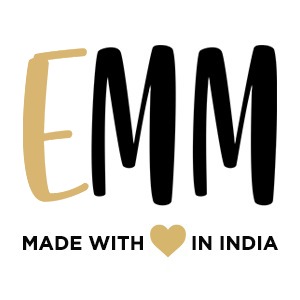What is spf? and what is the right spf for Indian skin?

Sunscreen should be an essential part of any skincare routine and shouldn’t be limited to the summer season but incorporated into your daily routine. Due to the increase in temperature UV rays are getting stronger.
Indian skin is complicated therefore it is hard to find sunscreen. There are different forms of sunscreen, before you spend a hefty amount on sunscreen you need to know your skin type.
How to understand What is SPF Means for your face?
- The SPF means Sun Protection Factor, it tells you how long UV radiation would take to flush your skin when using the products.
- Comparatively to lower Spf, a higher SPF broad-spectrum will give more protection against UVA damage, DNA damage, and sunburn.
How do chemical and physical sunscreens differ?
- Simply, physical sunscreens help to block the sun’s harmful rays from reaching the skin.
- When your outdoor activity is more you have to use physical sunscreen.
- On the other hand, chemical sunscreens help to absorb the sunrays by reflecting them.
- You can use chemical sunscreen if you have mild to moderate sun exposure.
- In the market, both combination sunscreen is available physical and chemical.
Are you Looking for sunscreen? Consider these.
1, 360° Block Sunscreen Gel SPF 50+:
- 360 block sunscreen gel SPF 50+ protects your skin from UVB, UVA, INFRA-RED RADIATION (IR), ATMOSPHERIC POLLUTANTS, and BLUE LIGHT.
- The complete protection in one sunscreen.
- It reduces melanin polymerization, freckles, black spot, gives the ultimate skin lightening effect, and also helps to reduce the sign of aging, fine lines, and wrinkles.
- Wear sunscreen to protect your skin from blue light if you spend a lot of time in front of a computer, laptop, or mobile device.
2, Acscreen Sunscreen For Oily And Acne-Prone Skin:
- If you have acne or pimples and thinking about which sunscreen to use?
- do not worry about our Acscreen Sunscreen meant for Oily and
- Acne skin With its advanced Oleosorb technological formula.
- Acscreen sunscreen gel also protects your skin against oily and acne.
- Paraben-free, Non-comedogenic, Non-opaque, No white Patches, Non-greasy water-resistant sunscreen.
3, Z Screen Non-Opaque Sunscreen Gel:
- Paraben-free with a high concentration of zinc oxide 25%.
- Z Screen creates an excellent broad-spectrum UVA to give maximum protection against the sun.
- It gives Non-sticky, matt, Velvety, and silky feel sunscreen Gel.
- It provides full-spectrum coverage across the entire UVA and UVB range.
- Unlike other sunscreens, Zscreen sunscreen is free from chemical actives and hence does not irritate your skin.
4, Uvmed Tinted Sunscreen Gel:
- Uvmed tinted sunscreen gel provides 50 times more protection from sun UV rays.
- Uvmed sunscreen protects the skin from UVB, UVA I, and UVA II. And it has an oil-free formula that is ideal for oily and acne-prone skin.
- To protect your skin from harmful UV rays you can use regular Uvmed sunscreen.
5, Z Block Physical Sunscreen With 25% Zinc Oxide:
- Z-Block sunscreen contains 25% zinc oxide. Which provides broad-spectrum protection against UVA and UVB sun rays.
- Z block sunscreen also has a higher SPF 58 which is 100% free of chemicals therefore no irritation to your skin.
- Z-Block has a non-opaque, non-whitening sunscreen experience.
- Z-Block sunscreen contains Zinc oxide, which is the only ingredient approved by the USFDA to provide broad-spectrum protection against UVA and UVB rays.
- The Z-Block sunscreen contains Zinclear IM, the clearest and most effective zinc oxide on the market.
- It is also certified as an organic cosmetic ingredient by Eco cert.
- Z-Block is up to 80 minutes water-resistant and also provides a matt finish, non-oily, and a silky-smooth feel.
Bottom line:
Every day! Before you venture out it is best practice to apply 30 minutes before you go outside. When you sweat excessively or do swimming, you have to reapply every two hours.
Sunscreen reduces your overall UV exposure and lowers your skin damage and skin cancer even when it’s cloudy sun UV radiation reaches up to 80 percent of the earth.














